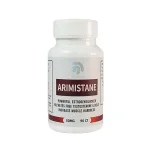
When it comes to enhancing performance and building muscle, two popular options often emerge: SARMs and Steroids. While both are used by athletes and bodybuilders for muscle growth and fat loss, the differences between them are critical when deciding which is right for you.
What Are SARMs?
Selective Androgen Receptor Modulators (SARMs) are compounds designed to selectively target muscle and bone receptors without affecting other tissues, such as the liver or prostate. SARMs are often preferred for their milder side effects compared to steroids, making them appealing to those who want muscle gains with less risk.What Are Steroids?
Anabolic steroids are synthetic forms of testosterone that promote muscle growth and improve athletic performance. However, steroids affect the entire body, often leading to more severe side effects, such as liver damage, hormonal imbalances, and heart issues.Key Differences
Targeting: SARMs focus on muscle and bone receptors, while steroids affect a broader range of tissues.Side Effects
SARMs typically have fewer and less severe side effects, whereas steroids can cause significant health issues.
Legal Status: SARMs are often sold as research chemicals and are technically legal in some regions, though not approved for human use. Steroids are heavily regulated and illegal without a prescription.
Muscle Gain: While steroids may offer faster, more dramatic results, SARMs provide steady gains without the harsh consequences of steroid use.
Which Is Right for You?
If you’re seeking maximum gains in a short period and are willing to deal with potential health risks, steroids may be an option under professional supervision. However, if you prefer a safer, more gradual approach to muscle building with fewer side effects, SARMs could be a better choice.Ultimately, the decision depends on your goals, risk tolerance, and commitment to long-term health.









